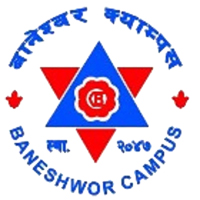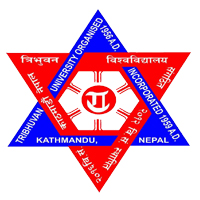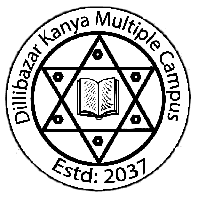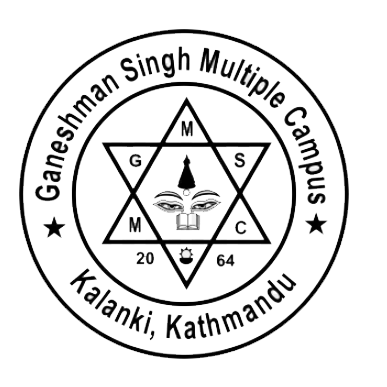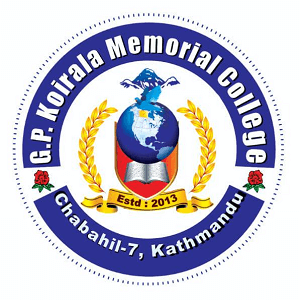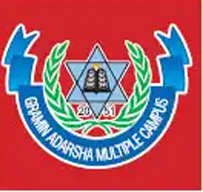Overview
Master of Education (M.Ed.) at Pashupati Multiple Campus, Mitrapark, Chabahil, Kathmandu
The Master of Education (M.Ed.) at Pashupati Multiple Campus (PMC), Mitrapark, runs under Tribhuvan University (TU), Faculty of Education. The program follows the semester system and the official TU curriculum. You study advanced pedagogy, specialized subjects, research methods, and a thesis with teaching practice. The standard TU framework uses 69 credit hours across core courses, specialization, teaching practice, and thesis work.
Highlights
-
Affiliation: Tribhuvan University, Faculty of Education (TU FoE).
-
Structure: Four semesters over two academic years; semester-based evaluation as per TU FoE.
-
Credit load: 69 credit hours in total (core professional courses; specialization courses; teaching practice; thesis).
-
Specialization at PMC: Subjects are offered as per campus notices and TU approval. Recent intakes prioritize English Education and Health Education.
-
Location advantage: Central Kathmandu (Mitrapark) with public transport access for working graduates and day scholars.
Introduction
You enter M.Ed. to deepen your subject expertise and strengthen your classroom, curriculum, and research skills. The TU semester plan gives you a clear sequence: foundations in education and psychology, research courses, specialization modules, school-based practice, and a thesis. The degree meets national requirements for postgraduate teacher education under TU FoE.
Students who plan to work as teacher educators, education officers, curriculum workers, or school leaders use this program to build academic depth and applied competence. The Central Department of Education (FoE/TU) specifies core graduation requirements that apply across campuses, including the 69-credit framework and completion of practicum and a thesis.
Curriculum Details
Credit Distribution and Semester Flow
-
Total: 69 credit hours across four semesters.
-
Components:
-
Core professional courses: 21 credit hours
-
Specialization courses: 39 credit hours
-
Teaching practice: credit-bearing practicum component
-
Thesis: independent research under faculty supervision
TU FoE’s official pages and revised semester documents confirm this structure for M.Ed. programs.
-
Typical Semester Progression (TU FoE)
-
Semester I: Foundations of education, advanced educational psychology, curriculum studies, and introductory research orientation (as prescribed in revised TU syllabi).
-
Semester II: Research methodology, assessment and evaluation, pedagogy-focused core, and specialization entry courses (per TU revised second-semester curriculum).
-
Semester III: Advanced research modules, ICT in education or equivalent TU-approved offerings, and deeper specialization subjects.
-
Semester IV: Teaching practice (school or program-based) and thesis writing under approved supervision, following TU procedures.
Specializations at TU and PMC Context
TU FoE authorizes several specialization routes (e.g., English Education, Health Education, Mathematics Education, Science Education, Nepali Education, and others; subject lists are administered by FoE and departments). PMC runs specializations per its academic plan and approved staffing. English Education and Health Education are commonly requested tracks; students should verify the active subjects for the current intake from the campus notice or administration.
Teaching Hours and Academic Load
TU’s revised M.Ed. curriculum outlines contact hours per 3-credit course and the semester-wise organization. The official PDF sets teaching hours and course patterns for first, second, and third semesters across M.Ed. offerings.
Objectives
-
Build graduate-level understanding of pedagogy, curriculum processes, assessment, and educational research.
-
Strengthen specialization knowledge relevant to secondary and higher education contexts under TU standards.
-
Prepare teacher educators, education planners, and academics who can design, conduct, and report research relevant to schools and teacher education.
Scope
Graduates apply their skills in schools, higher secondary institutions, campuses, NGOs/INGOs focused on education, and public bodies that administer school education. Roles include teacher educator, curriculum worker, assessment officer, researcher, and program coordinator. The FoE framework and departmental pages reflect these postgraduate pathways.
Learning Outcomes
By graduation, you will be able to:
-
Analyze and improve classroom practice using research literature and data from your own setting.
-
Plan assessments that match learning goals and interpret results for action.
-
Translate specialization knowledge into lesson plans, materials, and evaluation tools.
-
Conduct a thesis that follows TU protocols for proposal, supervision, ethical practice, data collection, and reporting.
Skill Development Modules
The program steadily builds practical capability:
-
Research and academic writing: Proposal building, literature review, data collection tools, basic quantitative/qualitative analysis, and thesis reporting per TU M.Ed. requirements.
-
Curriculum and instruction: Course planning, learning resources, and classroom delivery aligned with TU curriculum documents.
-
Assessment literacy: Test construction, item analysis, rubric use, and school-based evaluation practices.
-
ICT for teaching: Digital resources and classroom integration as provided in revised semester offerings and departmental guidelines.
-
Teaching practice: School placement or equivalent practicum with observation, feedback, and reflection, followed by reporting to meet TU FoE standards.
Teaching Methodology
Faculty members follow TU’s semester guidelines and departmental course plans. You attend lectures, seminars, guided discussions, workshops, and supervised school practice. Each course outlines objectives, content, activities, and assessment. The practicum includes classroom observation, lesson delivery, and a portfolio. Revised syllabi and departmental pages confirm these elements for M.Ed. across specializations.
Admission Requirements
-
Academic background: A Bachelor’s degree in Education (or a degree recognized by TU as equivalent for the chosen specialization) is required. Departmental requirements apply for specific subjects.
-
Entrance test: TU FoE administers the centralized entrance for M.Ed. admissions in a given academic session. Applicants follow the annual notice and submit the online form through the FoE portal.
-
Selection and enrollment: Admission proceeds as per TU FoE timelines and merit after the entrance process. The Central Department publishes graduation requirements that include completion of all 69 credits within TU rules.
Note for applicants: PMC announces intake details (active specializations, class schedule, and required documents) through campus notices at admission time. Always cross-check the current notice before applying.
Career Opportunities
Graduates typically move into:
-
Teacher education and campus roles: Teaching assistantships or lecturer roles in B.Ed./B.A. Education courses (subject to TU criteria and service rules).
-
School leadership and coordination: Department leads, academic coordinators, and assessment officers in secondary schools.
-
Curriculum and assessment units: Roles in curriculum development, item writing, and monitoring at institutional or government bodies.
-
Education projects: Training, program coordination, and research positions with organizations that run education initiatives.
These avenues stem from the M.Ed. purpose statements and departmental mandates under TU FoE.
Scholarships and Financial Aid
PMC follows public-campus norms under TU policy. Scholarships or fee support appear in admission notices for eligible categories and are processed within stated deadlines. Students seeking external support pursue government or partner schemes as announced nationally.
Why Choose This Course?
You gain a TU-recognized postgraduate qualification with a clear map of core study, specialization depth, teaching practice, and thesis. The semester system gives predictable timelines, and the curriculum materials are published by TU FoE to ensure transparency on course content, contact hours, and assessment.
If you plan to teach at advanced levels, train teachers, or grow into curriculum and assessment roles, this route offers subject depth and practical experience guided by the TU framework.
Conclusion
The M.Ed. at Pashupati Multiple Campus follows TU’s official semester system and the 69-credit structure. Your study plan includes foundations, specialization, school-based practice, and a thesis. The campus publishes intake-specific details—specializations on offer, scheduling, and submission deadlines—each academic year. Refer to the current campus notice alongside TU FoE’s official documents for exact requirements.
Frequently Asked Questions (FAQ)
1) How long does the M.Ed. take at PMC?
The regular plan runs four semesters across two academic years under TU.
2) How many credits must I complete?
You complete 69 credit hours as per TU requirements, combining core, specialization, practicum, and thesis.
3) Does TU require an entrance test?
Yes. TU FoE runs the centralized entrance. Apply through the official entrance portal when the call opens for the session.
4) Which specializations are usually offered at PMC?
Offerings are announced for each intake. English Education and Health Education are common routes; confirm the active subjects in the current notice. (Specialization lists and structures are set by TU and departments.)
5) What does teaching practice involve?
You complete supervised classroom practice and submit required documentation under TU rules. The practicum appears in the semester plan and contributes to the total credits.
6) What are the graduation requirements?
You must pass all courses, complete the practicum, and submit a thesis meeting TU standards for the degree award.
7) How is the coursework organized within a semester?
Each semester carries a set of core and/or specialization courses with specified contact hours per course. TU’s revised semester documents define teaching hours and course outlines.
8) What kind of roles do graduates take up?
Common roles include teacher educator, campus-based teaching roles, curriculum and assessment positions, and education project coordination.
9) When do admissions open?
TU FoE publishes the entrance and admission calendar each year. Follow the entrance portal and campus notice for deadlines.
10) Where can I read official curriculum documents?
Refer to TU FoE’s M.Ed. page and the revised semester curriculum PDFs hosted on the TU portal.


